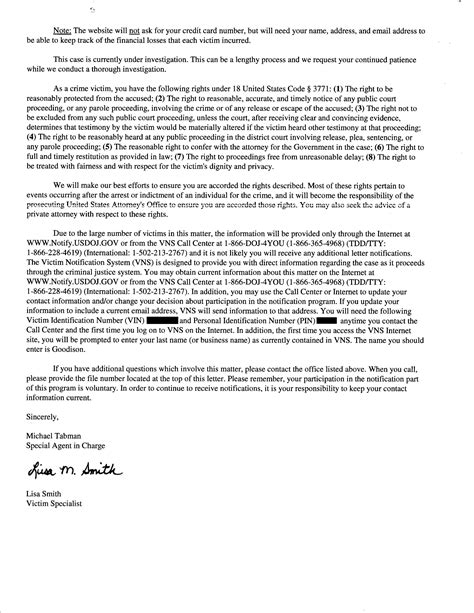Insurance For Identity Theft

Identity theft is a growing concern for individuals and businesses alike, with the potential to cause significant financial and reputational damage. In today's digital age, where personal information is constantly shared and stored online, the risk of identity theft has become more prevalent than ever. As a result, the demand for comprehensive insurance coverage to protect against this crime is on the rise. This article explores the importance of insurance for identity theft, delving into the various aspects of this protection and its implications.
Understanding the Threat of Identity Theft

Identity theft is a serious crime that involves an unauthorized individual obtaining and using another person’s personal information, such as their name, Social Security number, or financial details, without their knowledge or consent. This information can then be exploited for various fraudulent activities, including opening new credit accounts, making purchases, or even committing crimes under the victim’s name.
The consequences of identity theft can be devastating. Victims often face significant financial losses, damaged credit scores, and the arduous task of restoring their identity. Moreover, the emotional toll can be immense, as victims may struggle with feelings of violation, anxiety, and a sense of lost security.
The rise of technology and the increasing reliance on digital platforms for financial transactions and personal communication have created new avenues for identity thieves to operate. From phishing scams to data breaches, the methods employed by identity thieves are diverse and often sophisticated.
The Role of Insurance in Identity Theft Protection

Insurance plays a crucial role in mitigating the risks associated with identity theft. It provides a financial safety net for individuals and businesses, offering protection and support in the event of identity theft.
Coverage Options
Insurance policies for identity theft typically offer a range of coverage options. These may include:
- Identity Recovery Coverage: This coverage provides assistance and resources to help victims recover their identity. It may cover costs associated with replacing stolen documents, credit monitoring services, and legal fees related to identity theft cases.
- Lost Wages and Expense Reimbursement: Identity theft can result in lost time from work while victims deal with the aftermath. Some insurance policies offer compensation for lost wages and reimburse expenses incurred during the recovery process.
- Fraud Resolution Services: Insurance providers often partner with specialized firms to offer fraud resolution services. These services can help victims navigate the complex process of resolving identity theft issues, providing guidance and support throughout the recovery journey.
- Credit Monitoring and Restoration: Continuous credit monitoring is a critical aspect of identity theft protection. Insurance policies may include credit monitoring services to detect any unauthorized activity promptly. In the event of identity theft, these policies can also assist in the restoration of credit reports and scores.
The Benefits of Identity Theft Insurance
Investing in identity theft insurance offers several key benefits:
- Financial Protection: Identity theft can result in substantial financial losses. Insurance provides a financial safety net, covering costs associated with resolving identity theft issues and restoring one’s financial stability.
- Peace of Mind: Knowing that you have insurance coverage for identity theft can provide a sense of security and peace of mind. It assures individuals and businesses that they have the necessary resources to recover from such an incident.
- Expert Guidance: Insurance providers often partner with experienced professionals in the field of identity theft recovery. This means policyholders have access to expert guidance and support throughout the recovery process, ensuring a more efficient and effective resolution.
- Comprehensive Coverage: Identity theft insurance policies are designed to cover a wide range of potential scenarios and consequences. From lost wages to legal fees, these policies aim to provide comprehensive protection against the various impacts of identity theft.
Real-World Examples of Identity Theft and Insurance Claims
To illustrate the importance of insurance for identity theft, let’s explore a few real-world examples:
- Online Shopping Scam: Jane, a frequent online shopper, fell victim to a phishing scam while making a purchase. Her personal and financial information was stolen, leading to unauthorized transactions and a damaged credit score. With her identity theft insurance, she was able to receive financial compensation for the fraudulent charges and access credit monitoring services to restore her credit.
- Business Data Breach: A small business experienced a data breach, compromising the personal information of its customers. The business faced significant legal and reputational consequences. Their identity theft insurance policy covered the legal fees and provided support in notifying affected customers, helping to mitigate the impact of the breach.
- Identity Theft and Fraud: Michael discovered that his identity had been stolen and used to commit fraud. He faced challenges in restoring his credit and resolving the legal issues. His insurance policy provided him with the necessary resources to hire a lawyer, cover court fees, and assist in the recovery of his identity and finances.
Choosing the Right Insurance Coverage
When selecting insurance coverage for identity theft, it’s essential to consider the following factors:
- Policy Limits: Review the policy limits to ensure they align with your potential financial exposure. Higher limits may provide greater peace of mind.
- Coverage Details: Carefully examine the coverage details to understand what is included and excluded. Ensure the policy covers the specific scenarios you are concerned about.
- Deductibles and Co-Pays: Consider the deductibles and co-pays associated with the policy. Lower deductibles may be more suitable for those seeking comprehensive protection.
- Provider Reputation: Research the reputation and financial stability of the insurance provider. Choose a reputable company with a strong track record in identity theft protection.
- Additional Services: Look for policies that offer additional services such as credit monitoring, fraud resolution support, and access to legal professionals.
The Future of Identity Theft Insurance

As technology continues to advance and cybercriminals become more sophisticated, the threat of identity theft is likely to persist and evolve. This presents both challenges and opportunities for the insurance industry.
Insurance providers are increasingly recognizing the importance of identity theft protection and are developing innovative solutions to meet the changing landscape. Here are some key trends and developments to watch out for:
- Enhanced Digital Security: Insurance companies are investing in advanced digital security measures to protect policyholders' information and prevent data breaches.
- AI and Machine Learning: Artificial intelligence and machine learning technologies are being leveraged to detect and prevent identity theft more effectively. These tools can analyze patterns and identify potential threats before they cause significant harm.
- Collaborative Efforts: Insurance providers are partnering with cybersecurity experts and law enforcement agencies to stay ahead of emerging threats and share intelligence on identity theft trends.
- Proactive Monitoring: Instead of solely focusing on reactive measures, insurance companies are shifting towards proactive monitoring and prevention. This includes offering real-time alerts and notifications to policyholders when suspicious activities are detected.
- Comprehensive Coverage Options: Insurance policies are becoming more comprehensive, offering a wider range of coverage options to address the diverse needs of individuals and businesses. This may include expanded fraud resolution services and enhanced credit monitoring tools.
Conclusion
Identity theft is a serious and ever-present threat in today's digital landscape. While it may be impossible to completely eliminate the risk, insurance provides a crucial layer of protection and support for individuals and businesses. By understanding the various coverage options, benefits, and real-world examples, one can make informed decisions about their identity theft insurance needs.
As the insurance industry continues to innovate and adapt to the changing threat landscape, policyholders can rest assured that they have access to the latest tools and resources to combat identity theft and mitigate its impact. With the right insurance coverage, the journey to recovery from identity theft can be smoother and less burdensome.
FAQ
What is the average cost of identity theft insurance?
+The cost of identity theft insurance can vary depending on the provider and the level of coverage. On average, policies range from 25 to 50 per year for individuals, while businesses may pay a few hundred dollars annually for comprehensive coverage.
Can identity theft insurance cover all types of identity fraud?
+Identity theft insurance policies typically cover a wide range of identity fraud scenarios, including financial fraud, medical identity theft, and online account takeovers. However, it’s essential to review the policy details to understand the specific coverage provided.
How long does it take to recover from identity theft with insurance support?
+The recovery time can vary depending on the complexity of the case and the resources available. With insurance support, victims can access expert guidance and resources, potentially speeding up the recovery process. On average, it can take several months to fully restore one’s identity and financial stability.



